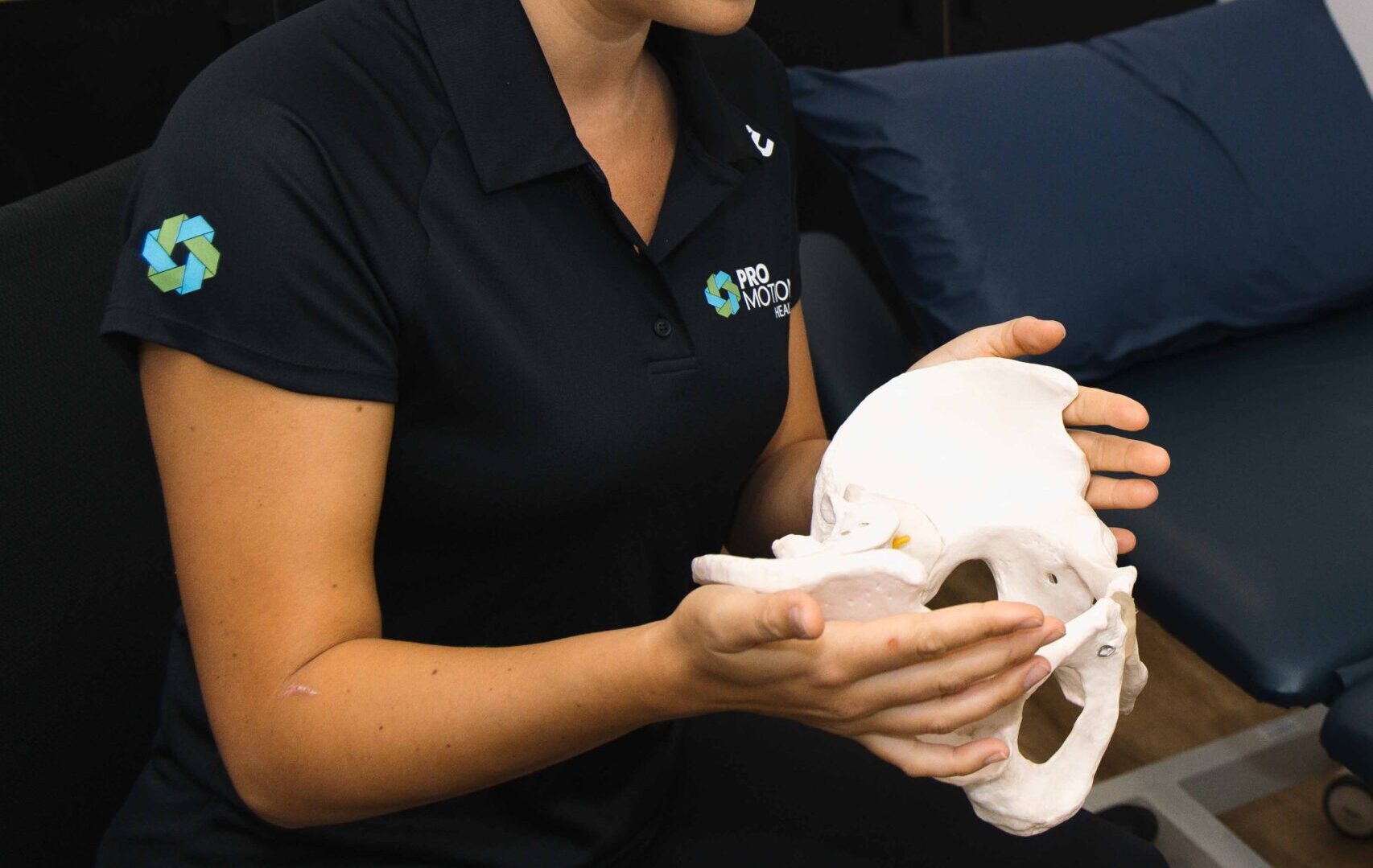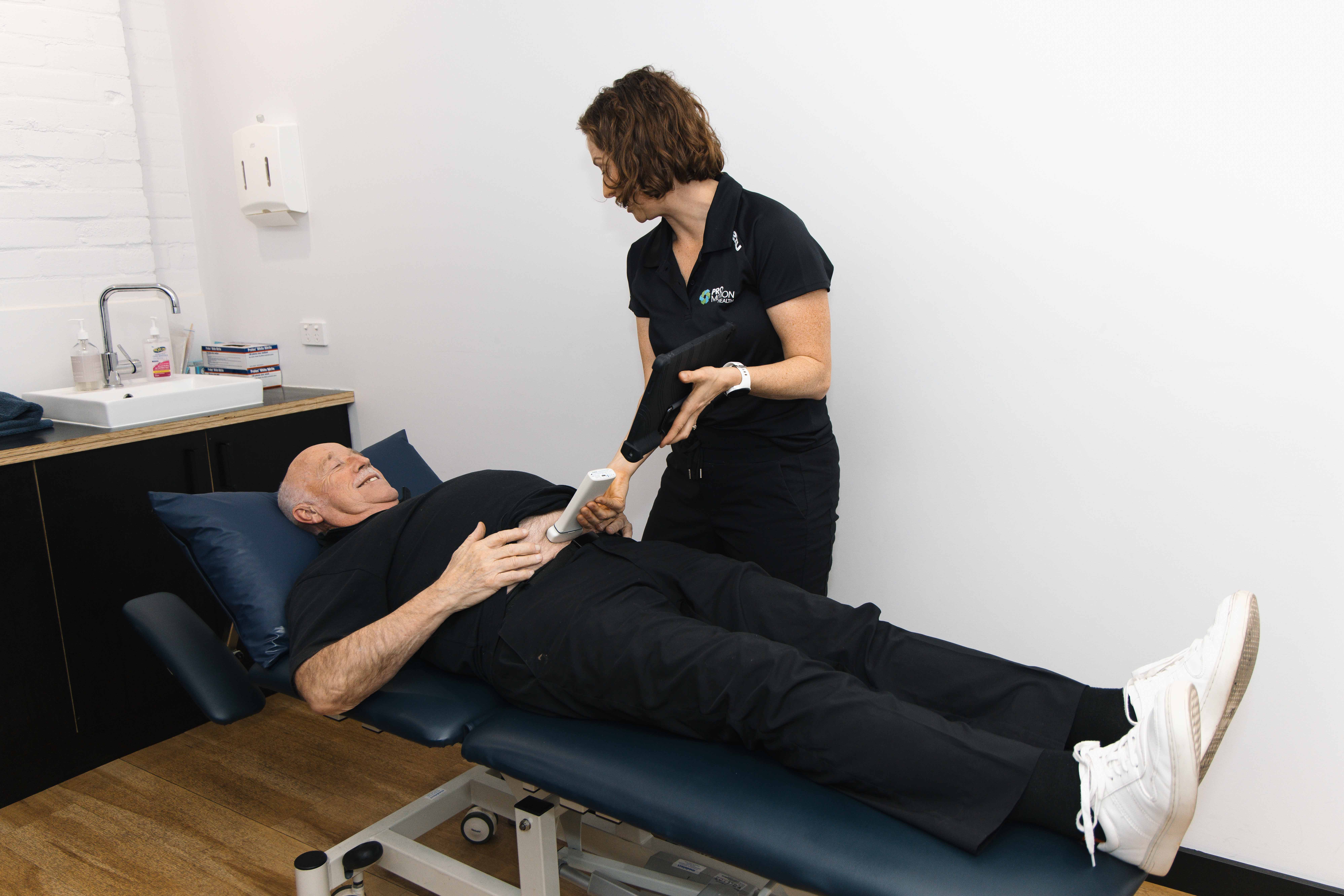Men's Health
Discover relief from pelvic pain with our specialised management program.

pelvic pain for men
Whether it’s discomfort in the lower abdomen, bladder, bowel, or other pelvic structures, our pelvic health physiotherapists provide expert assessment and tailored treatment plans.
From bladder and bowel issues to sexual dysfunction, we address the root causes of your pain and offer personalised strategies for overcoming it.
Don’t let pelvic pain disrupt your life any longer—schedule a comprehensive assessment with us to take the first step towards lasting relief and improved wellbeing.

pre and post prostatectomy
Navigate the challenges of prostate cancer and surgery with our specialised pre and post prostatectomy management program.
Post-surgery, urinary incontinence is common, but pelvic floor exercises can aid in quicker recovery. Consult with our Pelvic Health team before surgery to initiate pelvic floor exercises.
After surgery, a gradual return to physical activity, combined with targeted pelvic floor exercises, accelerates your progress towards achieving your goals.
Let us support you through every step of your journey to recovery and improved quality of life.
MEN Pelvic Health Services
At PROmotion Health, we understand that pelvic health issues can significantly impact a man’s quality of life. Our dedicated Pelvic Health team is committed to providing individualised, high-quality care to help men regain control and optimise their recovery. With extensive post-graduate and Master’s level training in Pelvic Health our physiotherapists are equipped to address a wide range of conditions affecting the pelvic area. We’re here to offer discreet, professional, and effective solutions, empowering you to take charge of your health and well-being.
Our expert team at PROmotion Health can help you with a wide range of men’s pelvic health concerns, including:
Bladder concerns
If you’re experiencing urinary incontinence (leakage), urgency, frequency, nocturia (waking at night), or bladder pain, our physiotherapists can assess your pelvic floor and bladder habits. Treatment may include pelvic floor muscle training, bladder retraining, education, lifestyle adjustments, and real-time ultrasound feedback to track progress.
Pelvic organ prolapse
Prolapse may feel like heaviness, pressure, or a bulge in the vaginal or rectal area. We provide non-surgical management options including education, pelvic floor strengthening, posture and load management strategies, symptom relief techniques, and referral pathways for pessary fittings if appropriate.
Bowel issues
Constipation, urgency, recurrent haemorrhoids, or anal fissures.
Erectile and Sexual Dysfunction
working alongside your GP’s or Urologist, to ensure full multidisciplinary care.
Our Approach to Your Pelvic Health
At PROmotion Health, your journey to better pelvic health begins with a comprehensive and personalised approach. We start with a detailed assessment to understand your specific concerns, medical history, and how your symptoms impact your daily life. This allows us to identify any contributing factors and create a truly individualised treatment plan.
Our treatments often involve a combination of evidence-based techniques:
Education: Empowering you with a clear understanding of your condition and strategies for self-management.
Pelvic Floor Muscle Training: Guided exercises to strengthen, relax, and coordinate your pelvic floor muscles, often utilising real-time ultrasound to provide visual feedback and ensure correct muscle activation.
Bladder and Bowel Retraining: Strategies to improve control, reduce urgency and frequency, and address issues like constipation.
Manual Therapy: Hands-on techniques to release tension, improve mobility, and alleviate pain in the pelvic floor and surrounding areas.
Biofeedback and Electrical Stimulation: Using technology to help you gain awareness and control over your pelvic floor muscles, or to help reduce pain and stimulate muscle activity.
Advanced Exercise Rehabilitation: Tailored exercise programs to regain full body strength and function, especially important for preparation or recovery from prostate surgery